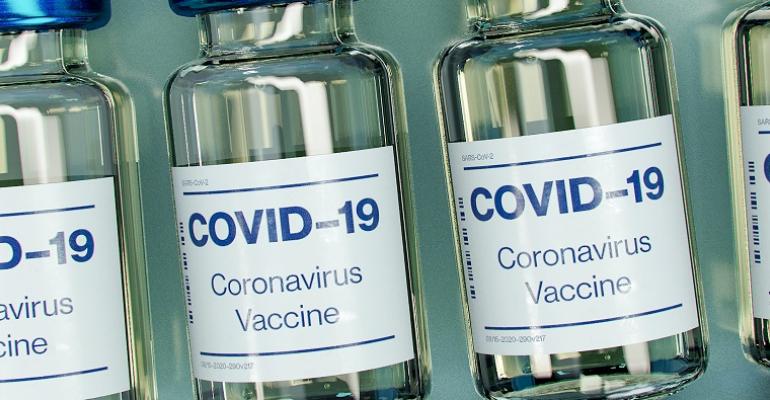Speaking at Containing Covid-19: Containerisation's role in global vaccine distribution, the panel explained that pressure to move COVID vaccine cargoes to ocean freight will build as countries and companies look to cut the delivered cost of vaccines.
“We don’t have endless supplies of money and this is something governments need to be careful on. The target price for vaccines is $3-5 per dose and transportation costs can be up to 30 or 40%,” said Michael Culme-Seymour, VP & Managing Director at APAC Roambee.
While some COVID vaccines require temperatures that cannot be maintained by readily available container types, others can be transported in standard refrigerated units. The main roadblocks to adoption of transport by sea were reliability and visibility.
Siddharth Adya, Vice President Cargo Solutions at PSA International said that data sharing and data flow will be key for the handling of containerised vaccine shipments by sea. “If data can be shared pre-arrival, the terminal… can plan ahead to ensure adequate resources to allow for a minimal time lag from vessel berth to the point the box is discharged and outgated. Further, with access to information, hand-offs across different modes can be pre-planned.”
The data pharmaceutical companies will need for vaccine shipments will be granular, said Culme-Seymour, almost down to individual vials, with need for visibility on location, temperature, signs of tampering and other environmental data.
Adya and Culme-Seymour both saw adoption of maritime transport for vaccines as a natural, gradual progression, but Culme-Seymour said the industry will need to demonstrate its capabilities. Confidence is important, and events like the blockage of the Suez Canal and queues of ships outside Los Angeles did not build confidence, said Culme-Seymour. The sooner test lanes can be set up for COVID vaccine transport by sea, the better, he added.
Hristo Petkov, global head of pharmaceuticals at AP Moller-Maersk stressed the significant work still to do in order to vaccinate the world and the maritime sector will play its part. Other vaccines and medicines in need of a controlled low temperature such as insulin were already transported by ocean freight, “when we look at the COVID vaccine, will it move by ocean? Eventually. Do we know exactly when? That is a little harder to estimate,” Petkov said.
Sebastian Steinmüller, director global ocean freight life science center at DHL Global Forwarding, said that pharmaceutical companies would take much longer than a week or even a month to transfer cargoes from air to sea as quality assurance processes would need to be put in place. Once supply chains were set up, containers posed a great opportunity for distributing vaccines, said Steinmüller, noting a recent trial with a customer where five million doses of a vaccine fit into a single container.
Petkov admitted that the container sector had faced schedule reliability challenges over recent years, and that while Maersk was ahead of the pack in reliability performance, the company was not proud of its performance. Maersk has a multi-year plan for improving reliability, and part of that was to engage in partnerships with customers to improve forward visibility on demand levels. The panel all agreed that partnerships and co-operation were key to progress.
Container availability has been an issue during the COVID pandemic, including for reefer containers, and this could be a hurdle, said Petkov, but Steinmüller responded that that sheer volume of vaccines that can fit in a single container would minimise its impact on reefer demand.
Petkov said that vaccines were a priority not just for the obvious humanitarian benefits, but as a means of opening up trade again, and maritime transport had much lower carbon emissions as well as lower costs.
Copyright © 2024. All rights reserved. Seatrade, a trading name of Informa Markets (UK) Limited.
Add Seatrade Maritime News to your Google News feed.  |

